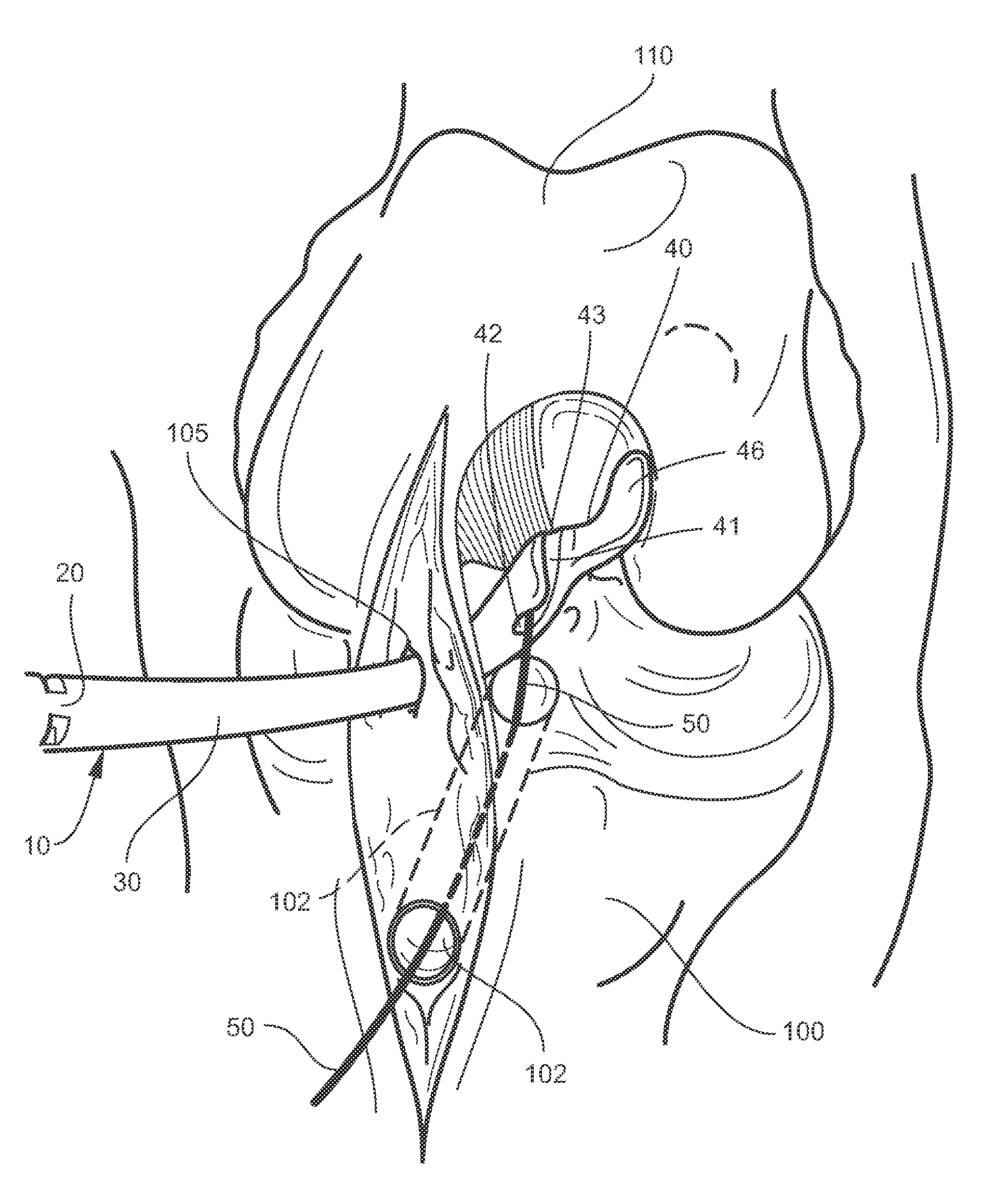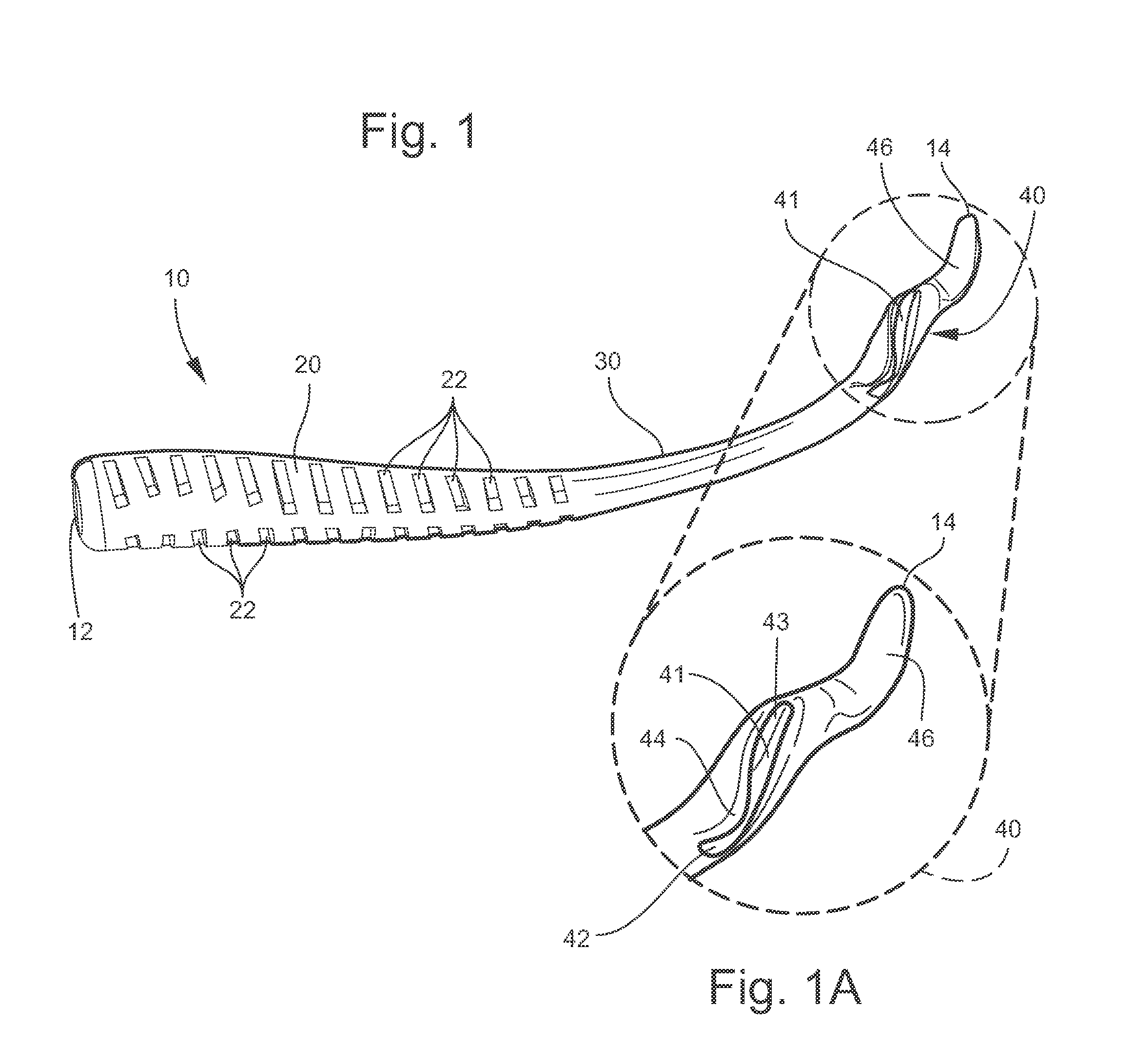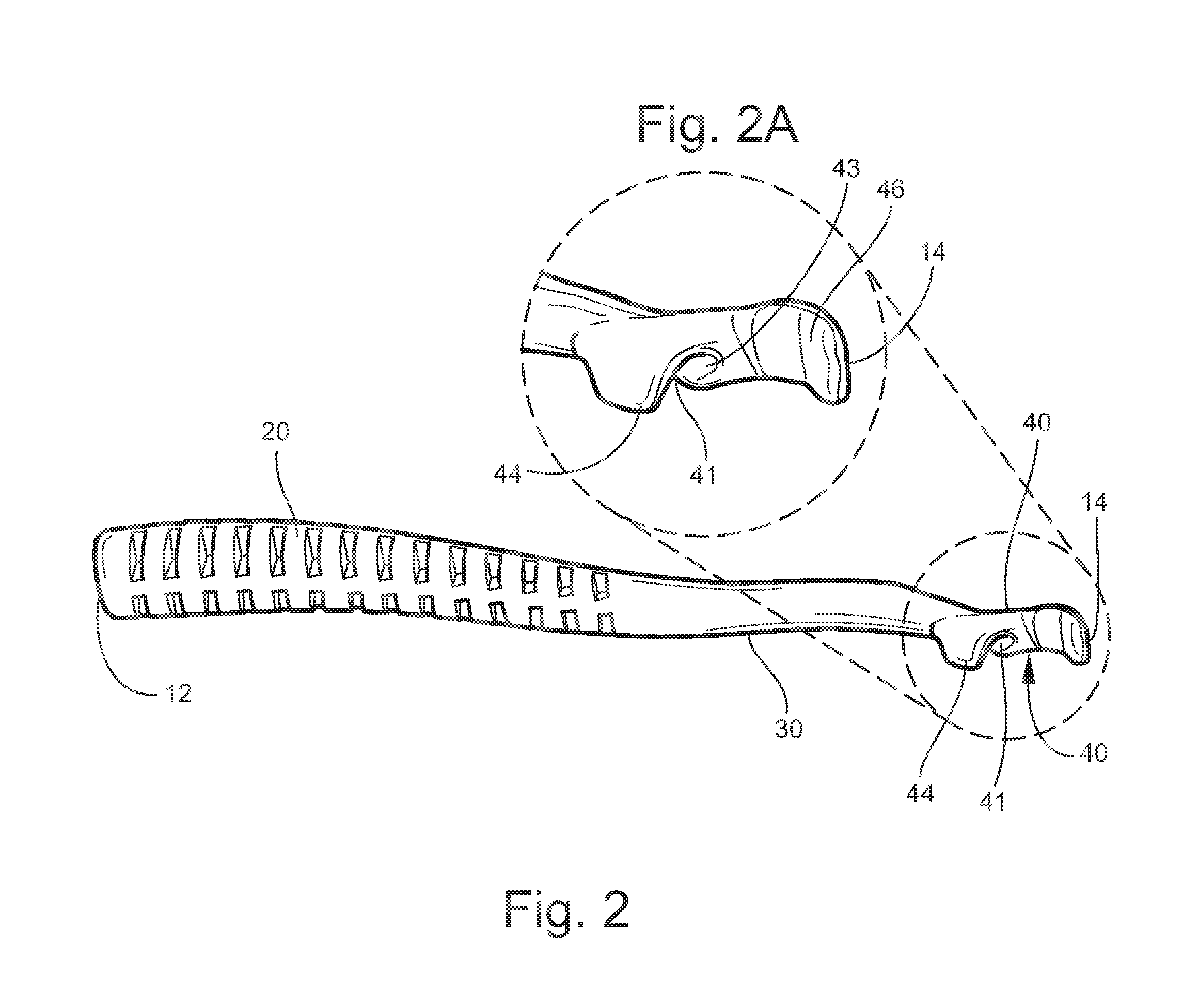Surgical instrument and method of using same
a surgical instrument and a technology of acl, applied in the field of surgical instruments, can solve the problems of affecting the repair efficiency of acl, the inability of tibial tunnel instruments to position the femoral tunnel correctly, and the difficulty of grafting, so as to improve the ease and outcome of acl reconstruction, improve the positioning of grafts, and improve the effect of grafting positioning
- Summary
- Abstract
- Description
- Claims
- Application Information
AI Technical Summary
Benefits of technology
Problems solved by technology
Method used
Image
Examples
Embodiment Construction
[0045]A surgical instrument according to a preferred embodiment of the invention is illustrated in FIGS. 1-4, and shown generally at reference numeral 10. As shown in FIGS. 1-3, the surgical instrument 10 comprises an elongate member having a first proximal end 12, and a second distal end 14. The instrument 10 includes a grippable handle section 20 beginning at the proximal end 12, a head section 40 at the distal end 14, and an angled intermediate section 30 between the handle section 20 and the head section 40.
[0046]As shown in FIGS. 1A, 2A, 4A and 6A, the head section 40 has a curvilinear groove 41 formed therein having an entrance 42 and an exit 43. A protuberance 44 extends into the groove intermediate the first and second ends of the groove, whereby the groove has a varying width wherein the width proximate the protuberance is narrowed relative to the width of the groove at the entrance 42 and exit 43, as shown in FIGS. 1A, 4A, 6A. The head section 40 includes an arcuate end po...
PUM
 Login to View More
Login to View More Abstract
Description
Claims
Application Information
 Login to View More
Login to View More - R&D
- Intellectual Property
- Life Sciences
- Materials
- Tech Scout
- Unparalleled Data Quality
- Higher Quality Content
- 60% Fewer Hallucinations
Browse by: Latest US Patents, China's latest patents, Technical Efficacy Thesaurus, Application Domain, Technology Topic, Popular Technical Reports.
© 2025 PatSnap. All rights reserved.Legal|Privacy policy|Modern Slavery Act Transparency Statement|Sitemap|About US| Contact US: help@patsnap.com



